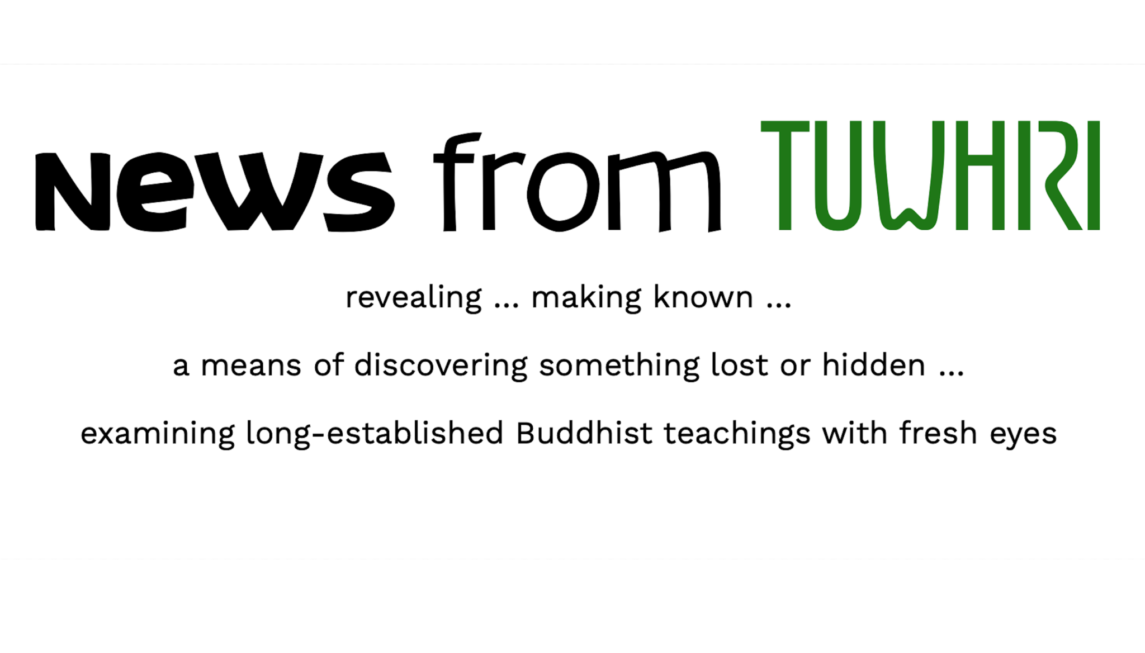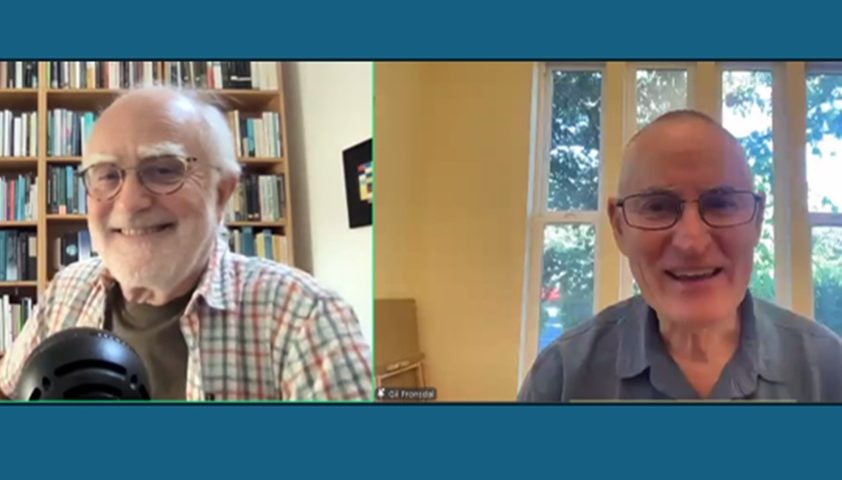POSTS:
Secular Buddhism

A practitioner’s journey to secular Buddhism: John
John Clinton Bradley moved away from a conservative form of Christianity to embrace a combination of humanistic Christianity and secular Buddhism.

Tuwhiri’s next book: ‘Living life on life’s terms’
Tuwhiri, the secular Buddhist publishing imprint, will shortly be publishing ‘Living life on life’s terms: turning the wheel of secular dharma’ by Stephen Batchelor, Martine Batchelor and Bernat Font.

Tuwhiri – books for secular Buddhists
Ramsey Margolis discusses Tuwhiri’s future offerings of secular Buddhist books, and encourages people – wherever you are in the world – to get involved.

Exploring a Secular Dharma: SBN’s Online Course
SBN's free online course on explores key concepts a secular dharma. Participants in the course will go through the five course modules, discuss the topics in each module with each other, and meet on Zoom every week with the instructor for the course.

Secular Buddhism and Mindfulness Based Ethical Living
Mike Slott discusses the relationship between a secular approach to the dharma and Mindfulness Based Ethical Living (MBEL).

Stephen Batchelor on Secular Dharma
In a chapter from his new book, Buddha, Socrates, and Us, Stephen Batchelor presents the core elements of a secular approach to the dharma.

A Secular Buddhist Response to Gaza
Sharon Tobias, Nan DiBello, and Karsten Struhl urge all Buddhists to condemn the genocide of Palestinians in Gaza, support humanitarian assistance efforts, and demand that the U.S. stop supplying weapons to Israel.

How Secular Buddhists Can Contribute to Movements for Social Change
Mike Slott discusses the ways in which a secular approach to the dharma offers important resources to political activists.

A core concept of secular Buddhism: the four tasks
The core teachings and insights of Gotama are not ‘truths’ to be believed but a ‘fourfold’ task to help us live our lives in a mindful and compassionate way.

The Case for a Socially Engaged Secular Dharma Practice
Caspar Harris argues that secular dharma practitioners should focus not just on personal development but engage with wider social issues and embrace what Thich Nhat Hanh calls interdependence.

The origin of secular Buddhism
The emergence of secular Buddhism in the west is part of the secularization that has been developing since before the Renaissance. Secular Buddhism represents the attempt to continue the process of rooting the dharma in modern western culture where the earlier non-monastic insight movement left off.

An introduction to secular Buddhism
For those who are curious about or interested in secular Buddhism and want to learn about this relatively new trend within Buddhism, this article will provide a helpful starting point for exploring a secular approach to the dharma.

Happiness Myths Exposed
Lenorë Lambert discusses the myths surrounding happiness and the need to embrace life as it is in an interview on the Redefining Wisdom podcast.

Stephen Batchelor and Gil Fronsdal Discuss “Buddha, Socrates, and Us”
Stephen Batchelor and Gil Fronsdal met on July 29 for a 90-minute online conversation to explore the themes of Stephen’s upcoming book, Buddha, Socrates, and Us: Ethical Living in Uncertain Times.

Cultivating Ethical Mindfulness — Reflections from Our Hong Kong Workshop
Ayda Duroux discusses a workshop on Mindfulness Based Ethical Living (MBEL) that she and Stephen Batchelor offered at the International Conference of Mindfulness - Asia Pacific (ICMAP) 2025.
EXPLORE BY SECTION
SEARCH THE SITE
RECENT POSTS









